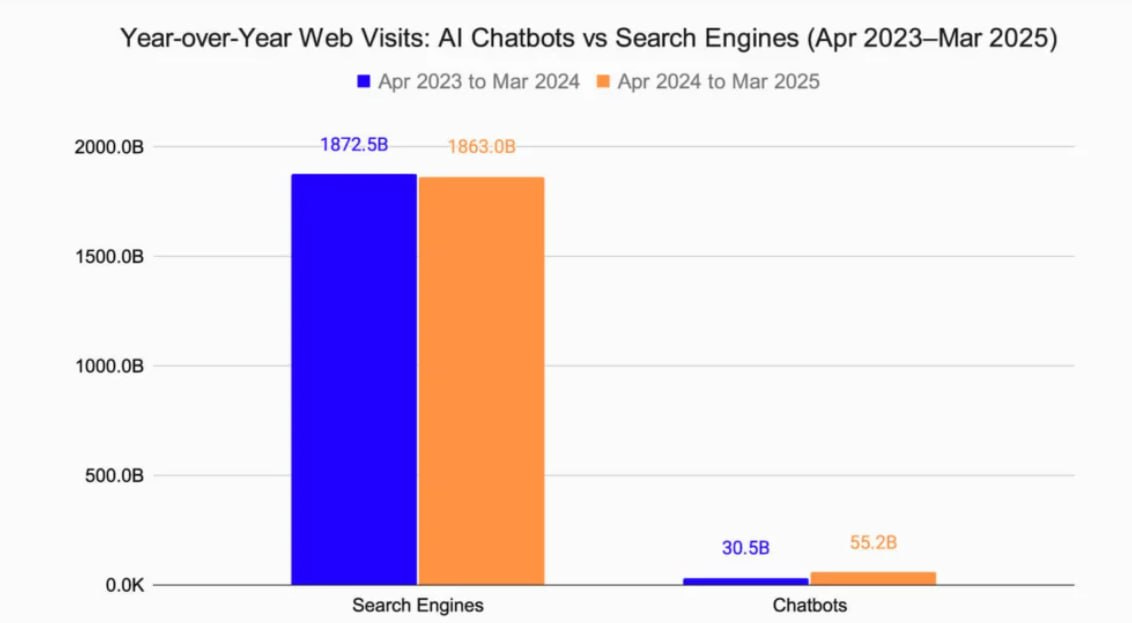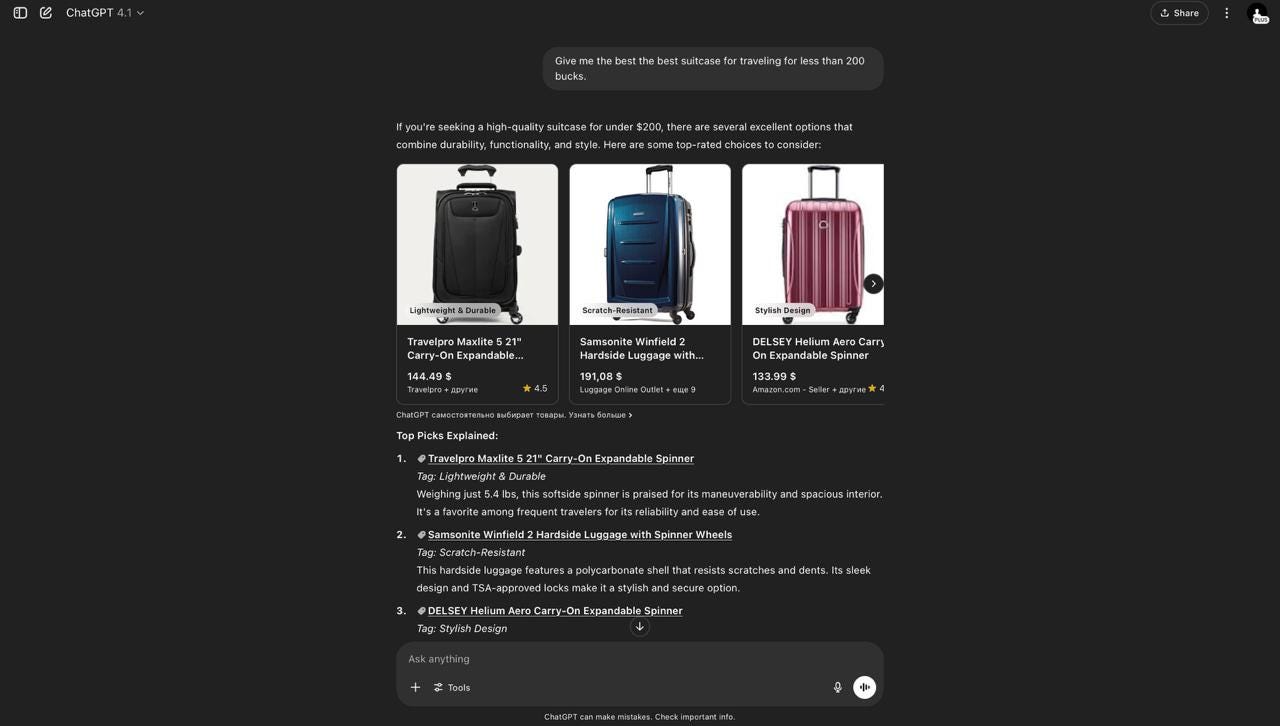LLMs Optimization (AI SEO)
Get indexed in AI (LLMs) world
Hi there! We all know that LLMs are becoming a key information and education source. Want your project to get noticed in your client’s ChatGPT response? Let’s see how to make that happen!
Let’s figure out how to work with big names like ChatGPT, Perplexity, and Gemini, and set you up for success. Ready to get started?
David Pierce captures the shift of search patterns perfectly in his recent article, "Obviously the Future of Google Search" for The Verge. He explains that Google’s AI Overviews are just the beginning — the company is already preparing for a world where all search is AI search.
For content creators, that means it's no longer just about ranking on page one of Google — it's about being summarized, cited, and surfaced by AI models.
What’s LLM Optimization (and Why It’s Urgent)?
LLM optimization is all about making your site or content easy for big language models (like ChatGPT, Perplexity, or Gemini) to understand, index, and quote. It’s not just about search rankings—it’s about how AI answers when someone asks, “What’s [your project]?” or “What are the best tools for [your niche]?”
Based on StatCounter’s highlights, recent data shows ChatGPT’s dominance in the AI model market, as shown below:
According to the article on businesstechweekly.com and new data from Similar’s latest market analysis, ChatGPT holds approximately 80.1% of the AI search market, outperforming competitors like DeepSeek (6.5%) and Google AI Search (5.6%).
Google Search: Despite the rising popularity of AI tools, Google remains the dominant player in traditional search, processing around 8.7 billion queries daily and receiving over 85.5 billion visits monthly.
But this is just the beginning, AI is rapidly gaining momentum and gearing up to compete with traditional search engines.
Growth in AI Chatbot Traffic: According to a fresh study from onelittleweb.com, chatbot traffic grew by 81% from April 2024 to March 2025, reaching 55.2 billion visits, with ChatGPT leading at 47.7 billion visits.
In the article "The Future is Now: Why AI-Driven Search Will Transform Your Marketing," published on March 14, 2025, on Pallas Advisory, they mentioned that by 2026, traditional search could lose 25% (if not more) of its volume to AI alternatives.
Current data indicates significant growth in the use of AI tools like ChatGPT and a gradual decline in the traditional search share. This shows AI, especially ChatGPT, is taking over, making it easier and quicker to find what we need online.
AI Traffic Real Life Case
Some projects have already raked in thousands of clicks just by becoming an Al favorite.
One standout example is Traveler Pro a luggage store, which gained attention after being featured and recommended by AI-driven platforms. Their detailed and helpful product reviews, combined with AI-powered marketing strategies, have helped them reach a wider audience and boost their online traffic dramatically. This shows how integrating AI can transform traditional retail businesses and amplify their growth.
How LLMs Actually Find and Quote You
LLMs like Perplexity, ChatGPT, Gemini, and next-gen models decide which content to quote. Your site needs to be machine-readable and spot-on to get noticed!
ChatGPT
You’ll usually get a summary in ChatGPT’s own words, sometimes with references if web browsing is used, but rarely with direct quotes unless you ask. ChatGPT can quote sources if you specifically request direct quotes or if it retrieves something from the web. Quotes will usually be brief, and ChatGPT cites the source (e.g., “According to the Creators AI website: ‘Our platform helps creators…’”).
Perplexity
Perplexity always provides a brief, sourced summary, pulling from multiple web sources in real-time. ou get bullet points, short summaries, and always a list of source links at the bottom. Perplexity is more likely to include direct quotes and always cites the source inline (with numbers or hyperlinks), so you can see exactly where the info is from. It can also fetch longer direct quotes if you ask.
Gemini
Gemini summarizes info like ChatGPT, but since it’s Google’s model, it often pulls the latest web info and may show a “snapshot” or preview of web results. You get a short, easy-to-read summary, sometimes with links or sources depending on how Gemini is set up (web-enabled or not). Gemini can provide direct quotes if you specify, and will typically attribute quotes to the source (e.g., “According to TheCreatorsAI.com: ‘[quoted text]’”).
TL;DR
Perplexity is best known for its transparent quoting and sourcing, functioning like a mini research assistant by providing summaries with direct references and often including actual quotes from web sources. In contrast, ChatGPT and Gemini typically summarize information in their own words, offering clear and concise overviews, but will quote and cite specific sources if explicitly requested or when web search is enabled.
llms.txt—The Robots.txt for the AI Era
llms.txt is a special file you can add to your website, similar to the "robots.txt" file used for search engines. It’s a guide for LLMs (like ChatGPT, Perplexity, or Gemini) to understand which parts of your site to read, which to quote in their answers, and which to skip.
How Does It Work?
To help large language models (LLMs) like ChatGPT provide accurate and relevant answers about your site, simply create a text file called “llms.txt” and upload it to your website’s root folder. This file lets you set clear rules for LLMs, such as highlighting which content to focus on (like your blog posts), what information to quote (like key statistics), and what to ignore (like contact forms or ads). By giving LLMs this guidance, you boost your chances of being cited correctly and ensure better, more useful responses about your content.
A couple of things to keep in mind: not every LLM supports llms.txt yet since it’s a pretty new idea, and you’ll need to update the file regularly as your site changes. Also, while this helps steer LLMs in the right direction, it’s not a guarantee you’ll always get quoted. LLMs still pick what’s most relevant and high quality.








